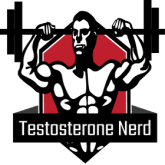As men get older, their levels of testosterone drop. This drop also affects their bone strength. A study looked at men older than 65 with low testosterone and weak bones. It aimed to see if raising their testosterone to levels seen in young men could help increase bone density.1 The research was done on 108 men. These men had low testosterone and low bone density. The results showed that increasing testosterone only helped men with the lowest testosterone levels. It didn’t improve bone density for all.1 This showed a potential benefit of testosterone in treating bone issues for older men with low testosterone.
Key Takeaways
- Testosterone plays a crucial role in maintaining bone mineral density in men over 50.
- Age-related decline in testosterone levels is a significant factor contributing to the development of osteoporosis and decreased bone health in older men.
- Testosterone therapy can modestly improve bone mineral density, particularly in older men with the lowest pretreatment testosterone levels.
- Potential risks and side effects of testosterone therapy must be carefully considered before treatment.
- Maintaining overall health, including weight-bearing exercise and adequate calcium and vitamin D intake, is important for bone health in aging men.
Role of Testosterone in Bone Health
Age-Related Testosterone Decline
Men’s serum testosterone levels drop as they get older, with levels at age 80 being 75% less than at 30.1 The free testosterone levels at 80 fall to about 50% of those in younger years.1 This drop in testosterone might lead to weaker bones in aged men.
Testosterone and Bone Mineral Density
Research finds a link between testosterone and bone thickness in women getting older.2 The fourth quartile of testosterone levels shows a stronger bond with bone thickness for those around 40 to 60 years.2 Thus, keeping testosterone levels healthy could help with bone strength in older men.
Effects of Testosterone Deficiency on Bone
Osteoporosis affects about 6% of men, according to NHANES data,1 and odds of spinal crush fractures rise with age to 32-35% at age 75.1 Also, older men with narrower bones face more risks of breaking bones easily.1 Not having enough testosterone plays a big role in osteoporosis and fracture danger for elderly men.
Testosterone and Bone Health in Men Over 50
Prevalence of Low Bone Density in Older Men
Older men often face low bone density and osteoporosis risks. Studies show a significant number – up to 30% – have osteopenia. Another 5-10% of men over 50 have osteoporosis.1
Risk Factors for Osteoporosis in Aging Men
Androgen deficiency, lack of exercise, poor diet, and certain illnesses up the osteoporosis odds in older men. Research says 15% of men face this issue.1
Mechanisms of Testosterone Action on Bone
Testosterone is key in keeping men’s bone density up. It affects both the cortical and trabecular parts of the bone, helping with body strength. About 26% of this support comes from testosterone.1 This hormone also helps in making more bone and stopping old bone from breaking down.
Men need testosterone for strong and healthy bones as they age. The size, density, and strength of our backbones vary, thanks to testosterone. It’s also why men’s upper leg bones are less likely to break easily.1 This hormone keeps bones tough and less fragile.
As men get older, their testosterone levels drop. This can lead to lower bone density and maybe even osteoporosis. It’s important for older men to find ways to keep their testosterone at healthy levels for their bones.

Testosterone Therapy and Bone Health
The use of testosterone therapy in older men with low testosterone has been looked into. It aims to better bone health. Research shows that men with low testosterone saw slight increases in bone density. This was especially true for the lower back.3
Effects of Testosterone Replacement on Bone Mineral Density
A review of treatments showed positive effects on bones in older men. They had stronger bones after therapy.3 Therapy also helped improve bone density and strength in controlled tests.3 In a different study, using testosterone and finasteride together was beneficial for bone and muscle health.3
Factors Influencing Testosterone’s Effects on Bone
Taking testosterone seems to help bone health in several ways. It improved bone density by 27%.1 Bones with more receptors for androgens got even better.1
Still, not all men responded the same to testosterone on their bone health. A study found some men didn’t increase in spine bone density. Yet, these men had the lowest testosterone before treatment.1

Potential Risks and Considerations
Testosterone therapy can help older men with low levels feel better. But, we must remember there are risks.4 This treatment may not help with energy or vitality for most healthy older men. Also, it might make conditions like sleep apnea, acne, or prostate problems worse.4
Prostate Safety
If you’re considering this therapy, know that prostate health is a main worry. Doctors check your testosterone levels twice before suggesting this therapy.4 They avoid giving it for typical age-related testosterone drops without other health problems.
Cardiovascular Risk
Think about your heart health too. Some studies link the therapy to more heart issues and blood clots.4
Erythrocytosis and Sleep Apnea
Therapy might increase your red blood cell count. This can make sleep apnea worse. It’s important to watch for these effects.4
With all this in mind, the benefits versus risks should be carefully considered. Especially your medical history and health.4
Conclusion
Testosterone is crucial for keeping bones strong. But, as men get older, their testosterone levels drop. This decrease can lead to osteoporosis and weaker bones. Studies show many men over 50 suffer from low bone density. About 30% have osteopenia, while 5-10% have osteoporosis.1 Having too little testosterone means a higher chance of breaking bones.1
Replacing testosterone might help improve bone health in these older men. It’s been found to slightly increase bone density, especially in the lower back.1 But, there are risks with this therapy. These include issues with the prostate, heart health, and breathing during sleep.
The drop in testosterone as men age is a big worry. To combat this, good exercise and eating habits are key. Also, getting testosterone therapy advice from a medical professional can help prevent or ease osteoporosis.
References:
- https://www.ncbi.nlm.nih.gov/pmc/articles/PMC5376477/
- https://www.ncbi.nlm.nih.gov/pmc/articles/PMC9525583/
- https://www.ncbi.nlm.nih.gov/pmc/articles/PMC7060639/
- https://www.mayoclinic.org/healthy-lifestyle/sexual-health/in-depth/testosterone-therapy/art-20045728
I've been fascinated by natural male hormone optimization since 2016. And ever since I've been going through boatloads of different meta-analyses and scientific data associated with increasing testosterone levels naturally. I hold a PhD degree in public health and have 10+ scientific publications on Google Scholar. Thus, in my collective work here you'll find helpful tricks, natural remedies, detailed product reviews (including stuff I've personally tried)... and more!



